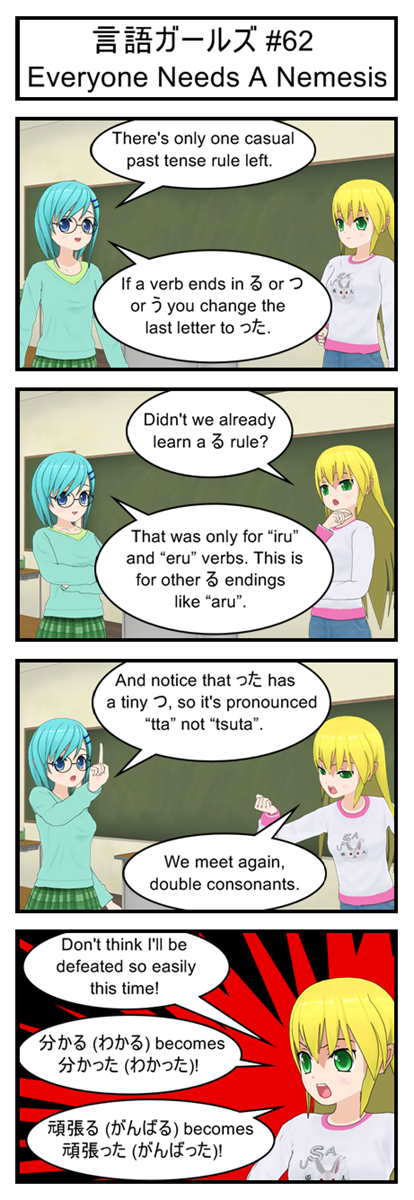
That’s pretty much it for the casual past tense. As a polite foreigner you won’t be using this very often, but you will be hearing it all the time in tv shows, books, games and other people’s casual conversations. So it’s definitely important to learn.
Transcript
言語ガールズ #62
Everyone Needs A Nemesis
Blue: There’s only one casual past tense rule left.
Blue: If a verb ends in る or つ or う you change the last letter to った.
Yellow: Didn’t we already learn a る rule?
Blue: That was only for “iru” and “eru” verbs. This is for other る endings like “aru”.
Blue: And notice that った has a tiny つ, so it’s pronounced “tta” not “tsuta”.
Yellow: We meet again double consonants.
Yellow: Don’t think I’ll be defeated so easily this time!
Yellow: 分かる (わかる) becomes 分かった (わかった)!
Yellow: 頑張る (がんばる) becomes 頑張った (がんばった)!